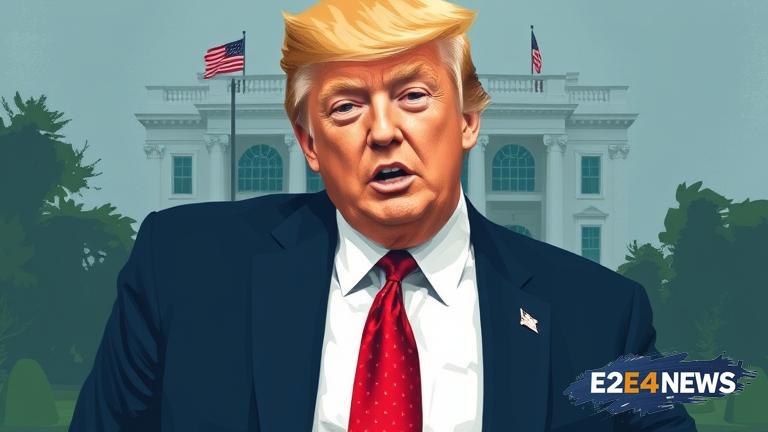The Trump administration has recently demanded an apology from George Mason University, citing alleged bias against conservative students and faculty. This demand comes after a series of complaints from conservative groups and individuals who claim that the university has created a hostile environment for those with right-leaning views. The administration has argued that the university’s actions, including the hiring of liberal professors and the promotion of liberal ideologies, have resulted in a lack of diversity of thought on campus. George Mason University has denied these allegations, stating that it values diversity and inclusion and strives to create an environment where all students and faculty feel welcome and respected. Despite this, the Trump administration has continued to pressure the university, threatening to withhold funding if it does not comply with its demands. This move has been seen as a part of a larger effort by the Trump administration to promote conservative values and limit the influence of liberal ideologies on college campuses. The demand for an apology has sparked a heated debate about the role of politics in higher education and the importance of academic freedom. Many have argued that the Trump administration’s actions are an attempt to intimidate and silence liberal voices, while others have seen it as a necessary step to promote balance and fairness on campus. The controversy has also raised questions about the limits of free speech and the responsibility of universities to protect the rights of all students and faculty. As the debate continues, it remains to be seen how George Mason University will respond to the Trump administration’s demands and what implications this will have for the future of higher education in the United States. The university’s decision will likely have far-reaching consequences, not only for its own students and faculty but also for colleges and universities across the country. The Trump administration’s actions have been widely criticized by academics and free speech advocates, who argue that they are an attack on the fundamental principles of academic freedom. Others have seen the demand for an apology as a legitimate response to the perceived bias against conservative students and faculty. The controversy has highlighted the deep divisions within American society and the challenges faced by universities in promoting diversity and inclusion. As the situation continues to unfold, it is clear that the debate over the role of politics in higher education will only continue to grow. The Trump administration’s demand for an apology has sparked a national conversation about the importance of academic freedom and the limits of free speech. Many have argued that the administration’s actions are a threat to the very foundations of American democracy, while others have seen them as a necessary step to promote balance and fairness. The controversy has also raised questions about the role of government in regulating higher education and the responsibility of universities to protect the rights of all students and faculty. The demand for an apology has been seen as a part of a larger effort by the Trump administration to promote conservative values and limit the influence of liberal ideologies on college campuses. This move has been widely criticized by academics and free speech advocates, who argue that it is an attack on the fundamental principles of academic freedom. Despite this, the Trump administration has continued to pressure George Mason University, threatening to withhold funding if it does not comply with its demands. The university’s decision will likely have far-reaching consequences, not only for its own students and faculty but also for colleges and universities across the country. The controversy has highlighted the deep divisions within American society and the challenges faced by universities in promoting diversity and inclusion. As the situation continues to unfold, it is clear that the debate over the role of politics in higher education will only continue to grow. The Trump administration’s actions have sparked a heated debate about the importance of academic freedom and the limits of free speech. Many have argued that the administration’s actions are a threat to the very foundations of American democracy, while others have seen them as a necessary step to promote balance and fairness. The demand for an apology has raised questions about the role of government in regulating higher education and the responsibility of universities to protect the rights of all students and faculty. The controversy has also highlighted the challenges faced by universities in promoting diversity and inclusion, and the importance of creating an environment where all students and faculty feel welcome and respected. As the debate continues, it remains to be seen how George Mason University will respond to the Trump administration’s demands and what implications this will have for the future of higher education in the United States.
